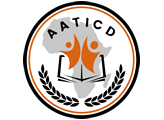Why Attend
A thorough understanding of your pharmaceutical company’s target audience is crucial when piecing together a marketable claim. The “one-size-fits-all” approach with physicians may have unfavorable effects on the pharma-physician relationship in an era where doctors are short on time while being flooded with massive amounts of data. As many promotional activities and messaging by the pharmaceutical industry do not resonate with their potential customers, it is essential to plan effective methods for approaching physicians in a changing era of medical practice.
This course introduces participants to the basic communication skills required to efficiently and effectively address complex clinical or experimental data with physicians. The expectations of the target audience, good data understanding, and analysis of the clinical trials, and factors influencing treatment choice by physicians will be thoroughly discussed.
Special emphasis will be placed on the most common physician profiles a pharmaceutical representative may interact with as well as potential challenges these profiles pose.
Course Methodology
This course uses a number of different training methods including presentations, group discussions, videos, question and answer sessions, case studies, and role-plays.
Course Objectives
By the end of the course, participants will be able to:
- Implement impactful communication skills while adapting to the projections of their target audience
- Acquire an understanding of physician profiles based on educational and cultural backgrounds, medical approaches, and thinking patterns
- Analyze the strengths and weaknesses of statistical data from a clinical trial
- Define factors influencing physician’s treatment choices
- Create marketing material and promotional events for pharmaceutical products
Target Audience
This course is specifically designed for individuals responsible for medical/pharmaceutical affairs, marketing, and field sales forces, as well as anyone involved in implementing effective communication techniques tailored to the different profiles of healthcare professionals.
Target Competencies
- Practical Statistical Reasoning
- Communication Skills
- Customer Psychology
- Creating Sales Strategies
- Creating Marketing Strategies
Location:
South AfricaTraining Dates:
Each course starts every Monday of each week. Please book your training on a date that is a Monday.Course Duration:
Unit Standard:
NQF Level:
Number of Credits:
Course Fees
Note: Please fill in the online application form on the left or bottom if this page to receive a quotation with detailed pricing from AATICD.How to Apply:
To Apply Simply Fill in the Online Enquiries / Applications form on the Right Sidebar or Bottom of this website https://www.aaticd.co.zaNB:
When filling the online application form; please take note of your desired Training Month, Duration in Weeks and Training Session. This will give us the exact dates you will be attending your classes.Also note that Tuition Fees must be paid upfront on or before training start date. This is to ensure that all resources are made availabe for you before you start. You will not be allowed into training if fees are not paid and verified.
Also note that Tuition Fees Cancellations must be made 14 business working days before the starting date of training. This will allow us to do a 50% refund of the total amount paid. If cancellations are made thereafter note that no refund will be made to delegates.
Tuition Fees include teas and lunch as well as either a laptop or tablet which a delegate will take home free of charge.
Tuition Fee DOES NOT include Accommodation, Dinners and other Extra Curricular Activities or Incidentals. Delegates are expected to fund this on their own. AATICD will not be held accountable for any incidents to delegates.
In-House Trainings are also available for 3 or more delegates for any duration. Please consult with our Administration for such In-House training bookings.
Course Outline
- Statistics for doctors – what they want to know
- Overview of a scientific article
- The question and the evidence-based answer
- Different study designs in practice:
- Reviews and meta-analyses
- Retrospective analyses
- Sub-group analyses
- Observational studies
- Clinical trials
- Dissecting a trial
- Presenting the data
- Statistics for the doctor
- Research to practice applications
- Communicating with doctors
- Basics of communication
- Different communication styles
- Discovering the doctor’s communication style
- Breaking the “one-size-fits-all” approach
- Differentiating between the promotional message and the medical message
- Different physician profiles and challenges
- The art of observation
- Getting the message across
- Making a big impact in little time
- Building a foundation
- Addressing concerns
- Answering different questions and their purpose
- What to say and when to say it
- Factors influencing the treatment choice
- Different physician perspectives
- Different physician profiles
- Addressing the concerns
- Presenting the data
- Challenging questions and suggestions
- Facilitating access
- Marketing and promotional events
- Different types of events and their intended purposes
- Choosing the target audience
- Working with speakers and attendees
- Assuring the scientific benefit
- Relaying the message while preserving ethical and high educational standards




